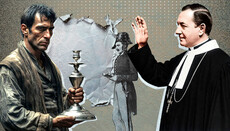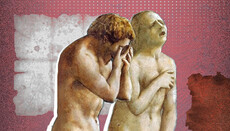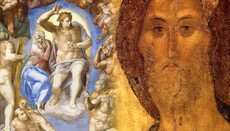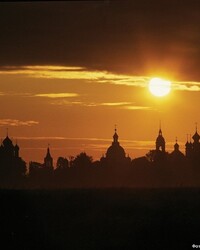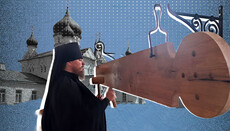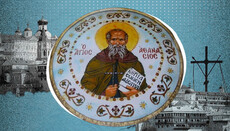Elder Kallinik: “I thank God for dying Orthodox”
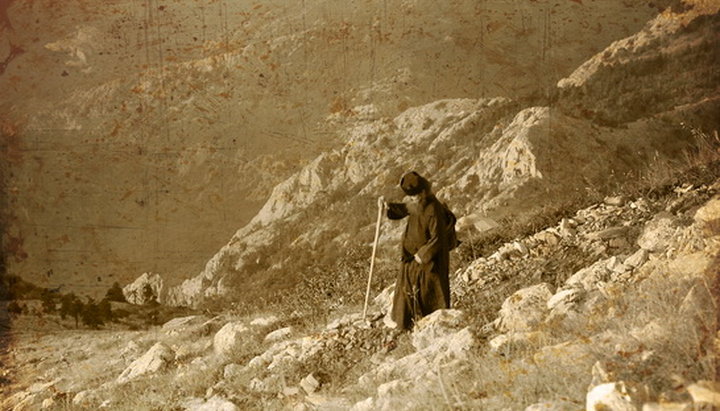
Elder Kallinik's face shone with the Uncreated Light so that it was hard to look at him. A story about him continues a series of publications about modern ascetics.
Scientists and prominent hierarchs came to Elder Kallinik Hesychast (1853-1930). Emperor Nicholas II honored the elder very highly. And among his pupils was Spiridon Menagias, a wealthy aristocrat in the past, a famous chemist, a graduate of the University of Zurich.
The greatness of this ascetic is correlated with the names of the most glorified saints. However, his name is still little known among our parishioners. By the grace of God, the only lifetime photograph of the elder preserved was taken without his consent by one of the saint's admirers.
Constantine Fiaspris (the worldly name of the elder) was born in 1853 in Athens. From childhood, he felt God's call for monasticism, but could not immediately make it out. Konstantin went to church, read, prayed, but he still had the feeling that something else was missing. Only after meeting with one of the monks of the Holy Mountain and learning from him about monasticism, Constantine decided to leave the world and go to Mount Athos.
The providence of God led the young man to one of the most zealous ascetics of Athos – Elder Daniel. At first, Abba Daniel was sceptical about the young ascetic.
When he was twenty-two, without telling anyone, he came to the port of Athens and prayed to God to be taken aboard the ship going to the Holy Mountain. The Lord heard his prayer. So, the future elder found himself among the Athos monks.
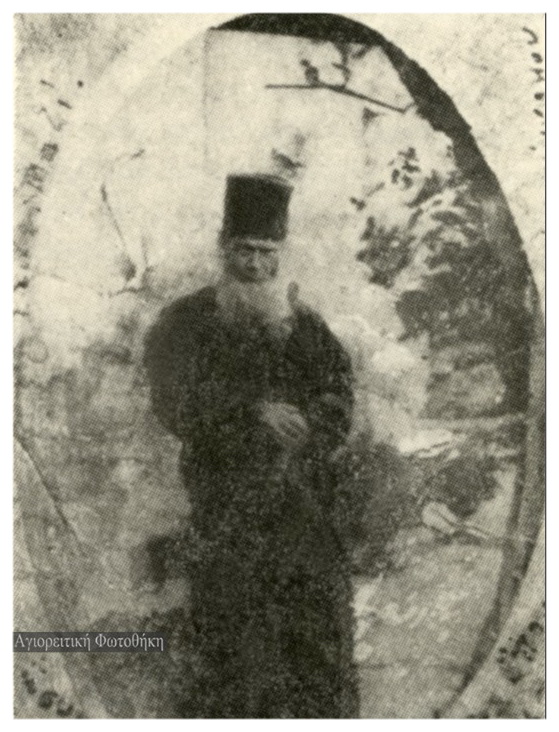
The providence of God led the young man to one of the most zealous ascetics of Athos – Elder Daniel. At first, Abba Daniel felt skeptical about the young ascetic. Can this well-educated person who has grown up in city comforts, bear the brunt of the monastic feat?
The place where Father Daniel worked was very difficult for life. There were no water sources, only rainwater, which had to be saved. Fruit, dairy products, vegetables were never served here. The bread was dry. The elder did not even allow washing with water. But the most difficult was voluntary imprisonment in one place. None of his pupils had the right to go beyond the borders of kaliva, except for those who the elder sent to exchange carved wood products made by monks for scanty food.
But to the surprise of Elder Daniel, Constantine not only withstood these trials but even succeeded much more than his long-tested and tempered pupils. The model piety of Constantine convinced the elder that he would be a worthy monk.
Constantine takes tonsure as monk Kallinik. Before leaving this world, Elder Daniel managed to teach his disciple the art of unceasing prayer and all the intricacies of mental doing.
After the death of his elder in 1881, the monk Kallinik himself becomes an elder, having absorbed all the wisdom of his teacher’s spiritual experience. Although he was only twenty-eight years old at that time. Besides the art of prayer, the monk Kallinik independently studied the Russian language to communicate with Russian monks and read spiritual literature in this language. Already at the age of thirty, he reached those spiritual heights to which a few, as a rule, come only at the end of life.
Having received various gifts from God, the monk became a famous confessor not only on Mount Athos but also far beyond its borders.
After that, the saint took upon himself the feats that even his spiritual teacher did not dare to bear.
In 1885, the elder completely retired to his cell and became a hermit. He spent forty-five years in seclusion. Not a single person saw his face, and the elder himself also did not see anyone and did not communicate with anyone. All the necessities were provided by two of his pupils. The elder broke his seclusion only in those days when it was necessary for someone to enter him in order to partake of the Holy Mysteries of Christ. At this time, the elder’s disciples contemplated the miracle of the Tabor Light, which brightened the face of their beloved abba.
Just like the monk Seraphim of Sarov, whom the Mother of God blessed him to leave the hermitage and care of people when he reached the very heights of deification, so Elder Kallinik, having gone through dozens of years of holy feats, with the blessing from above, began to receive people.
There were cases when, deepening in mental prayer, the elder could do without food, sleep and rest for several weeks.
Having received various gifts from God, the monk became a famous confessor not only on Mount Athos, but also far beyond its borders. The elder’s cell was visited by monks and policemen, ministers and beggars, traders, scientists and illiterate poor people. Many miracles and healings occurred during this period of the elder's life. But his greatest gift was the gift of spiritual reasoning, which attracted to him hundreds of monks who sought answers to the difficult questions of spiritual life.
There were cases when deepening in mental prayer, the elder could do without food, sleep and rest for several weeks. He was in such a state of awe that he did not remember how much time had passed since he began to pray. His disciples saw how at that time a marvelous light came from the elder, and he, tearing himself off the ground, soared in the air. Witnesses of this miracle were Not only the disciples of the elder but also other people who came for the conversation with Abba witnessed that miracle.
In the elder’s apt words, the name-worshiper “honors the skouphos but forgets about the head”.
In 1910, among the Russian monks of the Holy Mountain, the heresy of onomatodoxy (name-worship) began to spread. There were no scholars among Russian theologians who could competently address the heresy. Here the monk Kallinik took advantage of his knowledge of the Russian language. Having reached the heights of mental doing, the elder was revered on Athos as an authoritative expert on hesychasm. After examining the work of the monk Hilarion, the founder of the heresy of the name-worship, he gave an exhaustive definition of this new doctrine. In the elder’s apt words, the name-worshiper “honors the skouphos but forgets about his head”.
Sovereign Nicholas II even reprimanded the Synod of the Russian Orthodox Church: “The whole Holy Synod could not recognize heresies. It needed an ordinary monk from the Holy Mountain to enlighten you.” All who took heresy, which is about one thousand two hundred Russian monks, left Athos and moved to the Caucasus mountains.
Having no access to the elder’s soul due to its heavenly purity, the devil took up arms against him with slander and denunciations. Rev. Kallinikus had to face many insults and slander of the enemy. But the elder went through these temptations with his usual humility and meekness.
The elder’s death was incredible. In 1930, he was bedridden for forty days. On August 20th, when the reverend was already preparing to leave the earth, he saw in his cell a host of glorified fathers of the Holy Mountain. Moreover, the face of Elder Kallinik was such delightful and joyful as if at Easter.
Before his death, looking in awe at the great saints who had come to him, the monk Kallinik said: “Lord! I haven’t done anything good in my life, but I thank you for dying Orthodox.” After these words, the elder closed his eyes and gave his soul into the hands of God.
The higher the person, the more humbleness he has. Having lived from youth to old age in purity and chastity, having attained contemplative prayer, glorified by miracles and insight, Rev. Kallinik did not consider himself worthy to accept even the holy dignity. He sincerely considered himself the most sinful of people and always showed to all his brethren the deepest meekness and greatest love.
Truly such people are for us both a model and condemnation of our pride and opinions about ourselves. Rev. Kallinik, pray to God for us.
